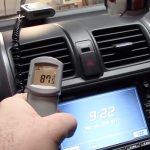The Honda Civic is a popular and reliable vehicle that is known for its exceptional performance and longevity. However, like any other car, it is not immune to mechanical problems.
One of the issues that Honda Civic owners may encounter is a malfunctioning condenser fan. The condenser fan is an essential component of the air conditioning system that helps to dissipate heat and cool the engine.
When the condenser fan is not working, it can cause a range of problems, such as reduced air conditioning performance, engine overheating, and even engine failure.
In this article, we will explore the possible causes of a Honda Civic condenser fan not working and provide tips on diagnosing and fixing this issue.
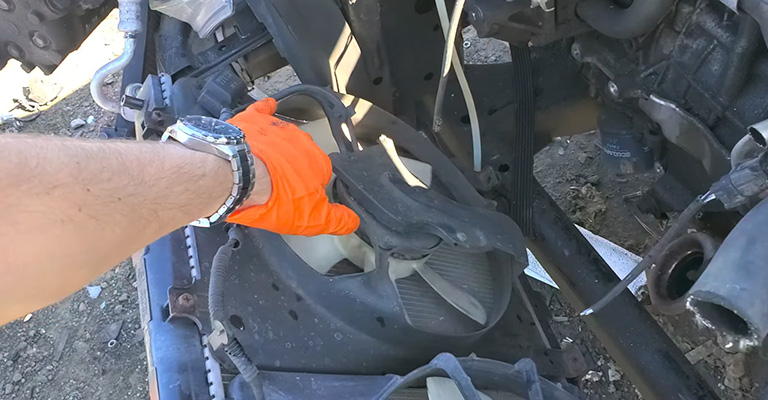
Honda Civic AC Blower Motor Not Working – Causes And Diagnosis
Air is blown through Honda Civics’ air conditioning vents by the blower motor, the central component of the air conditioning system. If the blower motor stops working in your Civic, air won’t flow out the vents when the AC is switched on.
AC fan blower motors are most commonly not working in a Honda Civic because of blown fuses, bad relays, faulty resistors, and faulty control modules. Blower motors may also stop working because of faulty electrical connections, broken wires, and defective climate control systems.
1. Bad Connector Or Broken Wire
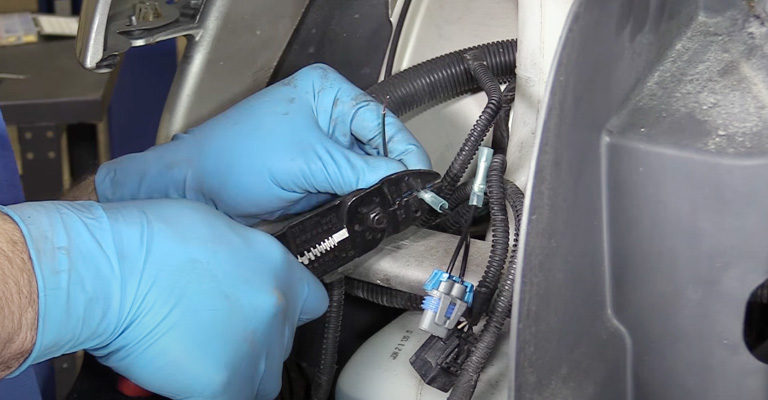
It is possible to interrupt the power supply to the blower motor in a Civic if the connector on the blower motor, the resistor module fails, or if the climate control unit goes bad.
Furthermore, damaged wires in the circuit, including those in the fuse box, can also stop the blower motor When rats or mice gain access to the hood or dashboard of your Civic and chew on the wire coatings, electrical problems may result.
The cables and hoses in the blower motor should be checked for damage if bite marks are discovered.
2. Faulty Blower Motor
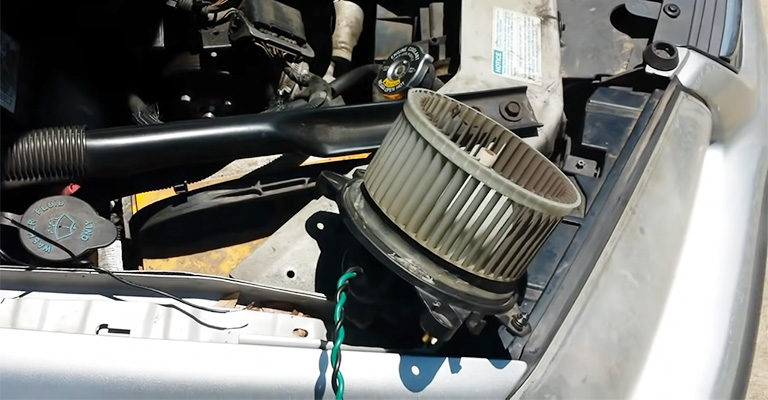
A broken blower motor could cause your Civics’ AC fan to not blow air properly or to blow air incorrectly.
Early Signs Of Blower Motor Failure
Motors can fail without warning at any time but are usually accompanied by early warning signs.
When the blower motor in Honda Civic fails, there will be unusual whirring noises from behind the dashboard, weak airflow, or smoke from the AC vents, especially if the fan speed is set high. Occasionally, there will be a burning plastic odor or smoke from the AC vents.
How To Test The Blower Motor?
- Make sure the blower motor’s electrical connector is unplugged.
- Insert a probe at each point, making sure the metal parts of the probes are not touching, into the connector.
- Turn on the AC fan in your Civic.
- The output voltage on the multimeter should read around 12 volts.
- This indicates a fault with the motor if the voltage is normal.
In Honda Civics, an alligator clip test cable can be used to detect a bad blower motor more accurately by connecting it directly to a 12-volt battery.
This indicates that the blower motor is dead and should be replaced if it does not spin after a direct connection to the battery.
How Long Do AC Blower Motors Last?
AC blower motors are not part of regular maintenance for Civics; they need to be replaced when they die. It is possible to use a blower motor for over 10 years without performing any maintenance.
A product can fail earlier than expected due to overheating, moisture damage, or manufacturing defects. As well, over time, the bearings of the blower motor may lose their lubrication and dry out, resulting in increased friction.
Behind the dashboard, you may hear strange whirring or droning noises.
3. Bad Resistor Or Control Module
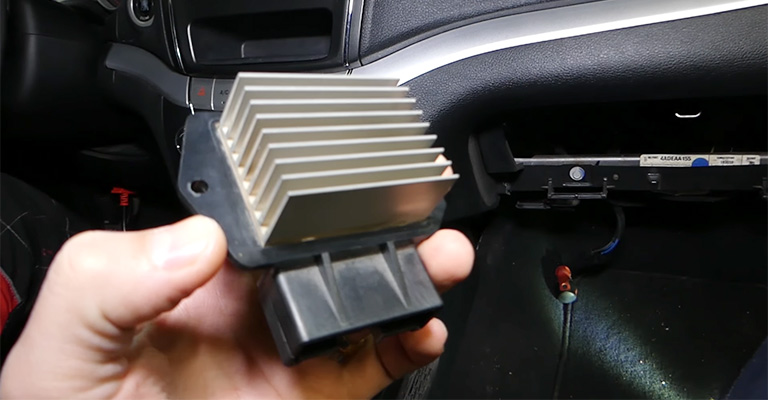
Essentially, the blower motor resistor controls the motor’s speed. A change in the AC fan speed in your Civic triggers the resistor module to increase or decrease electricity flowing to the blower motor.
Occasionally, the blower motor can stop working when a fault occurs in the resistor module. Normally, the resistor is located under the dashboard close to the blower motor on the passenger’s side.
Will A Blower Motor Work If The Resistor Is Bad?
Despite bad resistors, blower motors can still operate, although they may only operate at high speeds or remain stuck at one speed. It is possible, however, for the blower motor to cease to work if the resistor burns out from overheating.
What Causes Blower Motor Resistor To Fail In Civic?
The resistance may overheat and cause burnout if a struggling blower motor has degenerated internal components. When replacing a resistor, it is generally recommended to replace the old blower motor as well.
4. Bad Relay
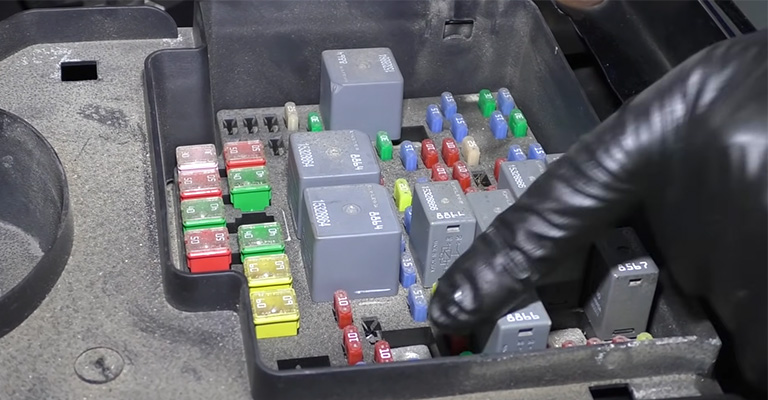
A relay is an electromagnetic switch that switches electrical loads on and off. You may also encounter an AC blower motor failure in your Honda Civic if there is a bad relay.
The first thing you should do is locate where the relay for your blower motor is located in your model Civic. A manual for your vehicle may contain this information.
The relays are usually located under the steering wheel on the left side of the vehicle’s engine compartment. Wiring diagrams are usually drawn on the facing if you are lucky.
If the relay does not work, replace it with another relay in the fuse box that has a similar amp rating. However, it is highly recommended that you disconnect the battery before starting the replacement.
Note: Auto climate control vehicles do not normally have a relay for the blower motor.
5. Blown Fuse
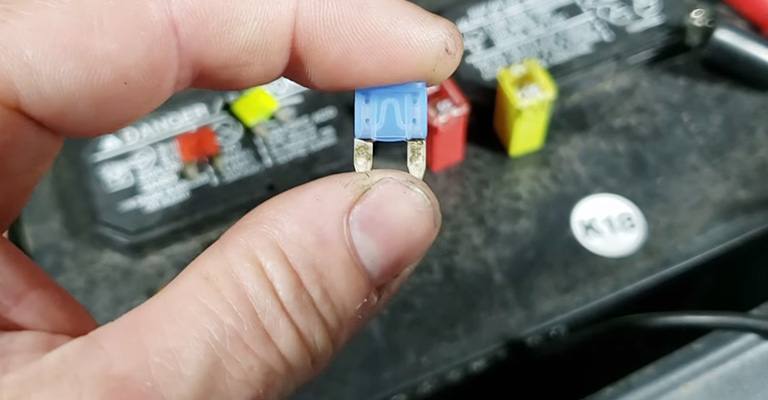
Electricity is needed to run Honda Civic’s AC blower motor. When a fuse fails, the circuit is interrupted, and the motor does not operate.
The exact position of the fuse for the blower motor can be found in your Civic’s owner’s manual or on the fuse box cover. It is recommended to replace a blown fuse with a new one capable of handling the amp rating specified.
If you want to check the fuse, pull it out of the fuse box and hold it up to the light with a fuse puller or needle nose pliers.
The fuse has blown if the metal strip is broken in the middle. The battery must be replaced with one of the same amperage and color. There is no difference between inserting the fuse in the right or left direction.
6. Defective Climate Control Unit
Besides controlling the temperature, the climate control module also turns on the blower motor and controls its speed. There are rare instances in which a malfunction in the climate control unit can affect the blower motor.
FAQs
The symptoms of a faulty condenser fan in a Honda Civic can include the following:
1. Reduced air conditioning performance.
2. Engine overheating.
3. A burning smell is coming from the engine.
4. A check engine light.
If you notice any of these symptoms, a mechanic must check your vehicle to diagnose and repair the issue.
The cost to replace a Honda Civic condenser fan can vary depending on the year, make, and model of your vehicle and the cost of parts and labor in your area. You can expect to pay between $200 and $500 for a condenser fan replacement.
It is not recommended to drive your Honda Civic with a faulty condenser fan as it can cause engine overheating, reduced air conditioning performance, and other issues that can lead to expensive repairs or engine failure.
Replacing a Honda Civic condenser fan can be challenging, requiring some knowledge of automotive repair and electrical systems. If you are not experienced in these areas, it is best to have your condenser fan replaced by a qualified mechanic.
Final Words
You may notice that your Honda Civic’s AC blower motor is not working for several reasons. To determine the cause, you should always start with the most obvious cause, a blown fuse or faulty relay.
Nevertheless, laypeople are advised to visit a workshop as you could easily damage their vehicle’s electrical system, especially if they do it themselves. Your problem can be diagnosed quickly by a professional mechanic.


